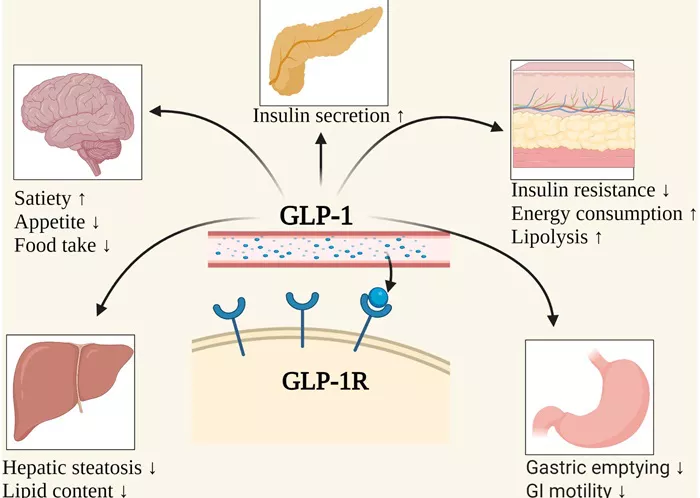A comprehensive analysis of GLP-1 receptor agonists has revealed significant benefits for patients with chronic kidney disease (CKD), particularly in those with type 2 diabetes, obesity, or cardiovascular disease (CVD). This groundbreaking study, the largest of its kind, highlights the potential of these treatments in improving kidney and cardiovascular health.
While GLP-1 receptor agonists have already been shown to provide benefits for managing type 2 diabetes, obesity, and CVD, their impact on chronic kidney disease had remained unclear. The new analysis, however, clarifies their role in managing kidney function, offering a promising treatment option for a broader range of patients.
The study incorporated data from 11 large-scale clinical trials evaluating the effectiveness of various GLP-1 receptor agonists, including semaglutide (Ozempic, Wegovy), dulaglutide (Trulicity), and liraglutide (Victoza). These trials focused on individuals with type 2 diabetes, those who were overweight or obese, and those with CVD but without diabetes.
Positive Outcomes for Kidney and Cardiovascular Health
When compared to placebo, GLP-1 receptor agonists were found to reduce the risk of kidney failure by 16%, as well as decrease the worsening of kidney function by 22%. In total, the combined reductions in kidney failure, progression of kidney disease, and kidney-related mortality were 19%.
The analysis also confirmed previous findings showing that GLP-1 receptor agonists lower the risk of cardiovascular death, non-fatal heart attack, and non-fatal stroke by 14%. Additionally, fatalities from any cause were reduced by 13% in patients receiving these treatments.
A Key Breakthrough for Kidney Protection
“This is the first study to demonstrate a clear benefit of GLP-1 receptor agonists in preventing kidney failure or end-stage kidney disease,” said Professor Sunil Badve, Professorial Fellow at The George Institute for Global Health and UNSW Sydney. “These results suggest that GLP-1 receptor agonists have a significant role to play in kidney- and heart-protective treatments for patients with common conditions such as type 2 diabetes, obesity, cardiovascular disease, and chronic kidney disease.”
Professor Vlado Perkovic, senior author of the study and Provost at UNSW Sydney, emphasized the potential for these findings to influence clinical guidelines. “Our study will have a major impact on the management of chronic kidney disease and cardiovascular disease in patients both with and without diabetes,” he stated.
Next Steps for Implementation
Despite the promising results, the researchers acknowledged that further work is required to integrate these findings into clinical practice. Professor Perkovic added, “More work is now needed to implement these results and improve access to GLP-1 receptor agonists for patients who stand to benefit the most.”
The study’s findings pave the way for broader use of GLP-1 receptor agonists in treating kidney disease and cardiovascular conditions, offering new hope for millions of patients worldwide.
Related Topics
Why Kiwis Are Superior to Vitamin C Supplements for Immune Health, According to Experts
Vitamin D Supplements Show Promise in Lowering Blood Pressure in Older Adults With Obesity
Vitamin D Supplements May Help Lower Blood Pressure in Older Adults with Obesity, Study Finds


































